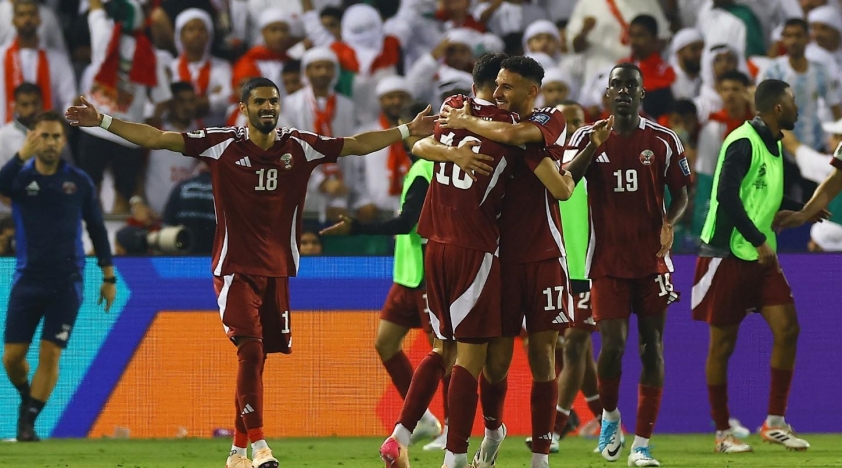AFC accused of favoritism, aiding Qatar and Saudi Arabia in securing spots for World Cup 2026
After Qatar and Saudi Arabia both secured their places for World Cup 2026, widespread criticism of the AFC surfaced, with numerous teams alleging that the federation manipulated match timings and venue choices to favor the two Gulf powerhouses.
The fourth round of Asian qualifiers for World Cup 2026 concluded amid intense controversy. The final two direct spots to North America were claimed by Qatar and Saudi Arabia, but the aftermath was filled with serious accusations of bias from the Asian Football Confederation (AFC).
According to the AFC’s decision, the fourth qualifying round was held centrally from October 9 to 15 at two locations: Qatar (Group A) and Saudi Arabia (Group B). Each group had three teams playing a single round-robin, with the group winner earning direct qualification. Initially, several federations such as UAE, Iraq, Indonesia, and Oman requested to host matches either at neutral venues or their home grounds, but AFC did not respond. Choosing two strong teams with substantial financial resources as hosts sparked widespread suspicion across Asia.
Oman’s coach Carlos Queiroz openly criticized: “Why not choose Japan, South Korea, or Kuwait? Those countries have far better infrastructure. This decision clearly lacks fairness.”

Not only the venues but also the match schedule caused dissatisfaction. Both Qatar and Saudi Arabia played the first and last matches, giving them up to six days of rest before the decisive round, while their opponents had only three days. This allowed the host teams to carefully plan, monitor their rivals' results, and adopt safe tactics to secure their fate.
The outcome was as expected: after a 0-0 draw with Oman, Qatar defeated UAE 2-1 to top Group A, while Saudi Arabia needed only a 0-0 draw against Iraq to claim first place in Group B. Both teams fully exploited home advantage and superior fitness to achieve their goals.
Middle Eastern media, including Gulf Times and Al-Arabiya, published numerous opinions suggesting that the AFC paved the way for the region’s two football powerhouses to advance directly to the World Cup. Fans from Iraq and UAE even called for investigations into the host selection process and match scheduling. “We didn’t lose because we played poorly, but because we had to play away and had only half the rest time compared to our opponents,” an Iraqi supporter wrote on social media.

Analysts also argued that the AFC’s choice of Qatar and Saudi Arabia—two wealthy nations heavily investing in Asian football—was driven more by political factors than sporting merit. Both countries possess top-tier facilities and are major commercial partners of the AFC in various projects.
At the end of the qualifiers, Qatar and Saudi Arabia joined the group of eight Asian teams confirmed for World Cup 2026 alongside Japan, South Korea, Iran, Uzbekistan, Jordan, and Australia. Meanwhile, the two runners-up, UAE and Iraq, must compete in playoffs for intercontinental qualification.


Wonderfulshortvideo
Things you really love to see


Neymar highlights neymar edit neymar lamine yamal celebration


Arsenal 1-0 chelsea havertz goal


Ahead of his 100th cap, Sir Keir Starmer had this message for Maro Itoje…


yamal goal yamal instagram yamal dribble barcelona 2-1 albacete yamal highlights yamal edit


casemiro goal casemiro assist casemiro 6 7 celebration


"Can I just start off by saying I want to congratulate Maro on 100 tests... He's a great bloke and a great player."









 Links
Links
 Contact
Contact
 App
App


